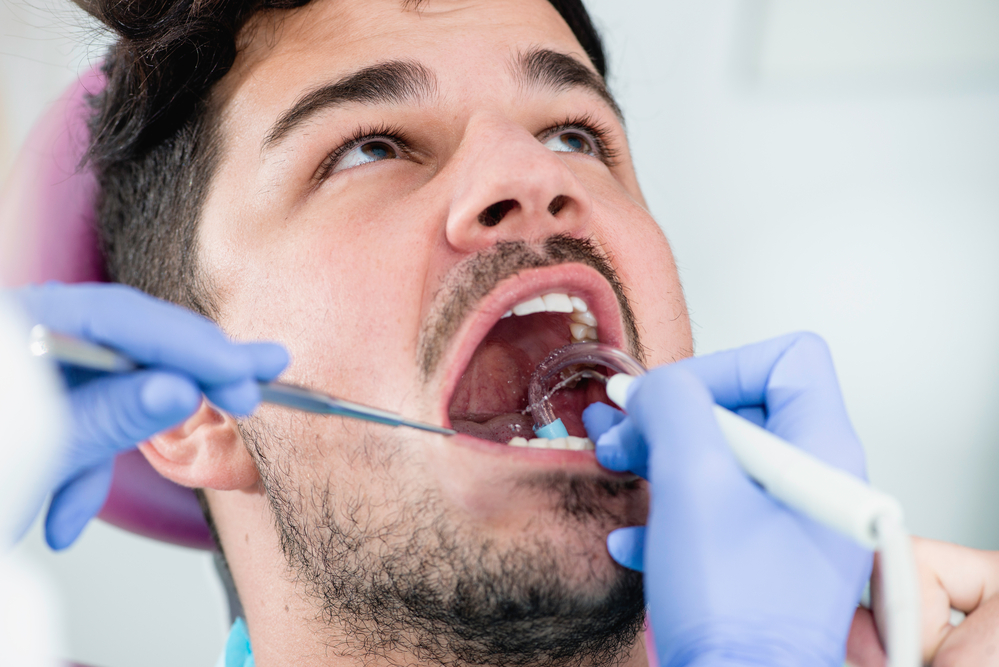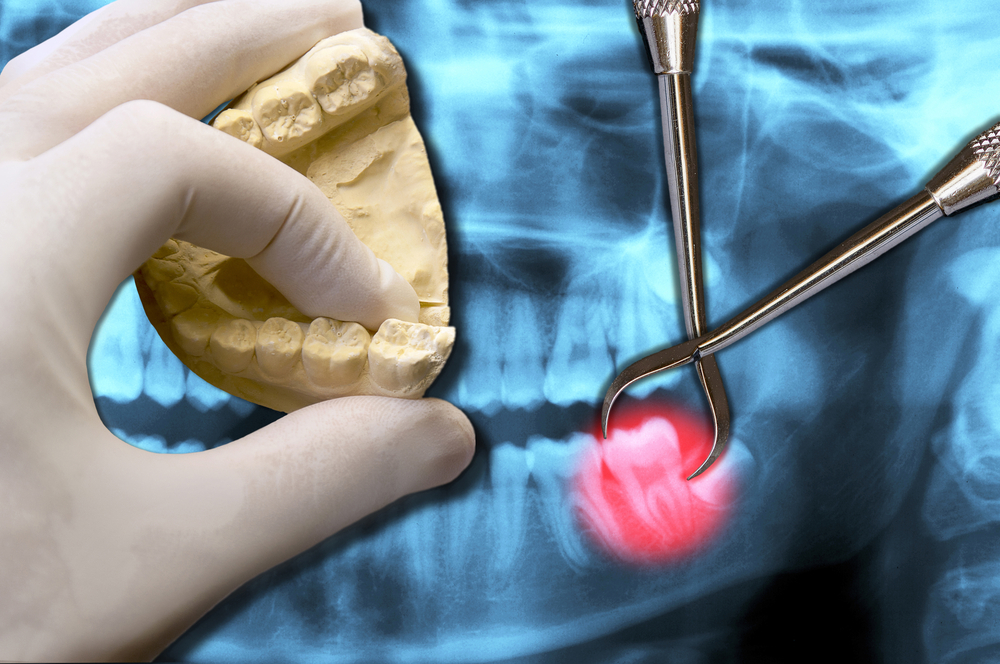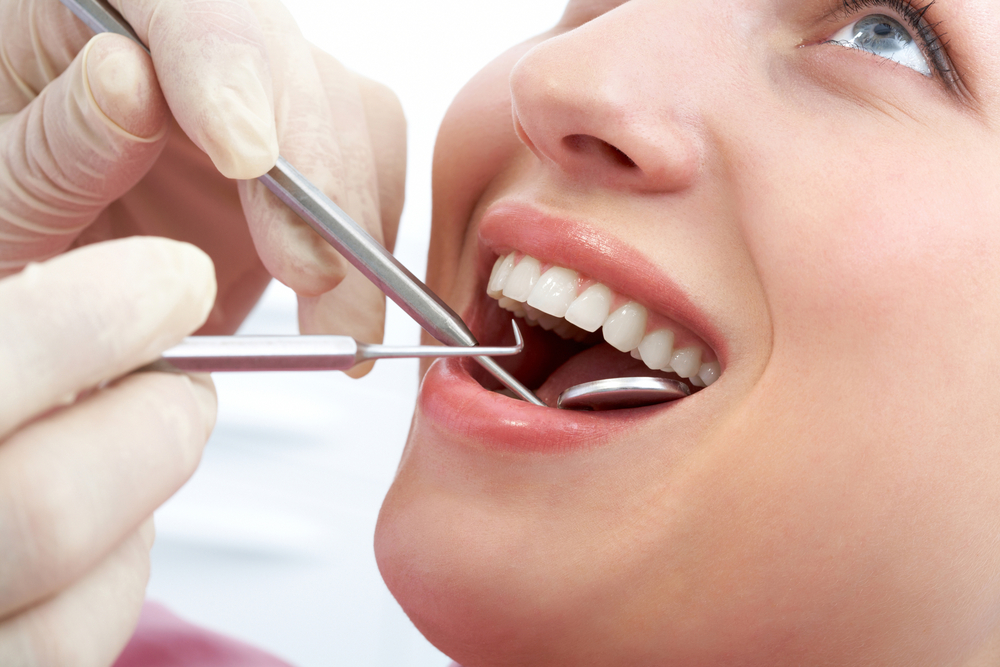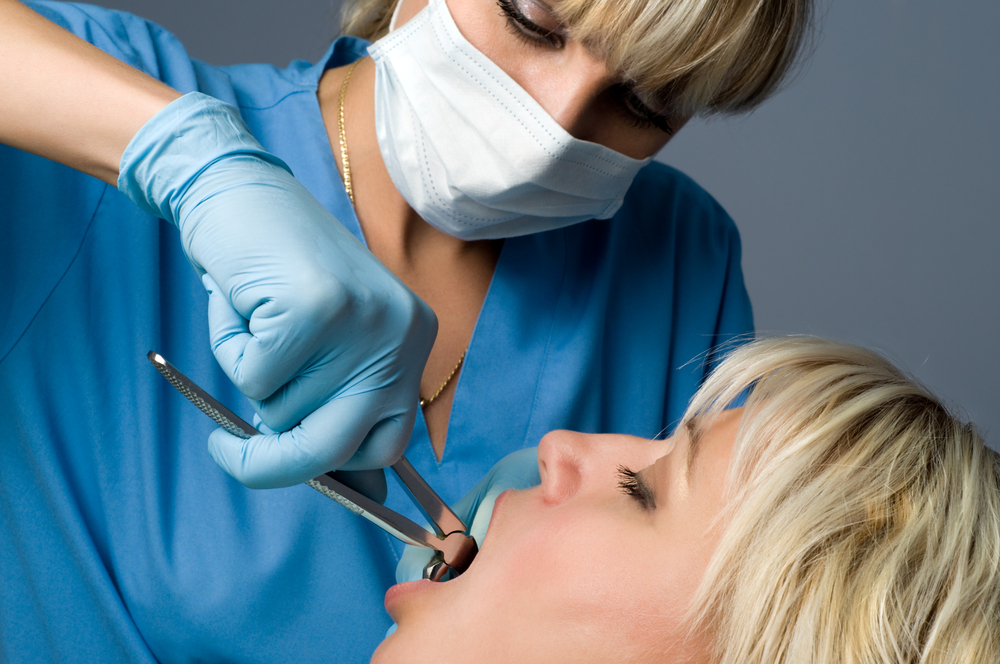You may be wondering, "Can an orthodontist clean my teeth?" Cleaning your teeth is an important part of good oral hygiene. It is designed to remove dental plaque from your teeth and help you avoid cavities, gingivitis, and periodontal disease. It is also an important part of maintaining good oral health, and one of the best ways to keep your teeth and gums healthy is to brush and floss at least twice per day.

When you wear braces, you may have special needs that require special cleaning techniques. Powder polishing, which uses sodium bicarbonate and water, can be useful for cleaning around brackets and underwires. Traditional prophylaxis paste polishing is another good option. It uses special angled brushes that can clean around orthodontic wires. The paste can be flavored to make the experience more fun for younger patients. Check this out
Dental cleanings can be done by a dentist or by a dental hygienist. The process starts with a procedure called scaling, which removes plaque and tartar that forms around braces. Then, the dentist will floss your teeth and clean your gums. After that, they may even recommend a fluoride treatment. Depending on your orthodontic treatment, you may need to visit your dentist more often, but there's no need to avoid your routine cleanings.
Regular dental cleanings are crucial for the smooth functioning of your orthodontic journey. It is recommended to schedule cleanings at least every six months. If you have braces, it may take longer to have your teeth cleaned than usual, but a professional cleaning is essential for preventing dental disease.
Cleaning your teeth with braces is not a fun process, and avoiding certain foods and beverages can prevent painful gums. By undergoing a professional cleaning, you can prevent gum disease and get rid of swollen gums. Additionally, the cleanings will also help prevent the teeth from becoming stained. If your teeth become stained, you can also ask a dentist for a whitening treatment.
The last step is fluoride treatment. This process protects your teeth against cavities for several months. It will be applied to your teeth by your dental hygienist. The process will involve placing either a sticky or foamy paste into your mouthpiece and letting it sit for a minute. Afterwards, a fluoride varnish is painted on your teeth with a small brush. This varnish hardens when in contact with saliva.
While cleaning your teeth with braces can be tricky, it is important to visit your dentist regularly. Your dentist can help you maintain your smile with regular cleanings. You should make a cleaning appointment twice per year for optimal oral health. It is also important to have a regular checkup, so it's important to maintain a regular schedule with your orthodontist. And remember, you can always contact your dentist for any questions.
The dentist's office will use a tool that rotates at a slow speed and a soft rubber cup on the end. This tool polishes your teeth while removing tartar and bacteria. The hygienist will load the cup with prophylaxis paste, and run the tool over your teeth, front and back.
You should also visit your dentist before getting braces. This appointment will ensure that your teeth are healthy and that your jaw is sturdy enough for your orthodontic treatment. Otherwise, braces can damage your teeth or gums. This is why your dentist will insist that you visit them before getting braces. They want to make sure you're healthy and free of cavities and any faulty dental work. They can also check if your braces are causing any discomfort to your gums.
Regardless of the reasons for getting braces, it's essential to brush and floss your teeth regularly. While braces may make it difficult to floss your teeth, proper oral hygiene can help you avoid developing white spots. This is caused by plaque biofilm masses that process food debris. The bacteria in plaque biofilm mass secrete acids that etch the teeth. If you can keep your braces clean and healthy, you'll avoid developing these unsightly white spots. A fantastic read
The wisdom teeth, also known as third molars, can cause concern in orthodontics. Teenagers and parents worry that these teeth will shift after they've had braces. Others wonder if they should be removed altogether. The truth is that the answer depends on the circumstances of the patient.

If the wisdom teeth are impacted, they can cause the other teeth to shift and cause crowding. In these cases, they may be removed by an orthodontist. In many cases, wisdom teeth that erupt before braces are placed don't cause these problems. However, if wisdom teeth erupt after braces, the result will be a different story. In such cases, the teeth may shift again, but a retainer will prevent this from happening. Learn more
Sometimes the wisdom teeth don't come in properly. This can result in pain or even damage to the adjacent molars. Sometimes they even come in at an angle that won't allow them to fit properly in the mouth. In other cases, they are simply positioned in the mouth at the wrong time and put pressure on other teeth. Sometimes the mouth simply isn't big enough for the extra molars.
In most cases, the wisdom teeth shouldn't cause any problems when in proper alignment. However, sometimes they can grow sideways toward another tooth, known as an impacted tooth. This can result in pain, inflammation, and bacterial infections. It can also damage the bone structure. This is where an orthodontist comes in. The goal is to ensure that your mouth is healthy and that you don't have any problems with your teeth.
However, an orthodontist can remove your wisdom teeth if necessary. They can also align the rest of your teeth. In some cases, the procedure might not involve wisdom teeth, but the end result is the same: a straighter, more beautiful smile. If you have any concerns about this, contact an experienced orthodontist today.
If you have an impacted wisdom tooth, your dentist may recommend removal before they cause any problems. This can help you avoid the need for additional orthodontic treatment in the future. If your wisdom teeth are impacted, you could experience decay and gum infections. During your next checkup, your dentist may suggest removing them to avoid these complications.
The most common reason for removing your wisdom teeth is lack of space in your mouth. Having an impacted tooth can also affect the front teeth. This can cause them to decay and weaken the bones surrounding them. In some cases, cysts can form around the wisdom teeth. This can make the teeth shift, or increase in size. If this happens, you could have to have both teeth removed to make more space.
The procedure is typically a quick, outpatient procedure. A local anaesthetic is usually used. A doctor will apply the anaesthetic to the area around your tooth. This will make it more comfortable for the patient and make the process less painful. A general anaesthetic will only be necessary if the wisdom tooth has broken through the gum.
You may want to have your wisdom teeth removed before you undergo any orthodontic treatment. In some cases, you can wait until your teeth have completely fallen out before getting your wisdom teeth removed. However, it is best to consult with an orthodontist for your particular situation. Your orthodontist will be able to recommend a solution for you. If you're a teenager, you can wait a little longer before getting your wisdom teeth removed.
In addition to causing problems, having your wisdom teeth removed can also help you with orthodontic treatment. They can cause your other teeth to shift and can prevent your braces from working effectively. Furthermore, they can push against your other teeth and cause root fractures or cracks. These are some of the common reasons why it is so important to have your wisdom teeth removed.
Fortunately, the procedure is safe and effective. If your child has a crowded mouth, a tooth extraction can be a great option. An extraction can straighten your teeth and help you smile with confidence. The procedure can be done either before or during your orthodontic treatment. Then, you can get on with the rest of your orthodontic treatment. It is important to consult a specialist if you have any questions or concerns.
Many people experience problems with their wisdom teeth. Sometimes, they're painful or swollen, and can even be infected. Discover the next post
While the answer to the question of can orthodontist fill cavities is generally no, it's a good idea to seek a second opinion. The dentist who diagnosed your cavity will likely have a more thorough understanding of the procedure than you do. Cavities are typically treated in a similar fashion to braces. Typically, a cavity will be detected by tooth sensitivity, or a sharp ache when chewing. If you suspect you have a cavity, you should brush your teeth after meals and use a fluoride mouth rinse to help prevent further decay.

The dentist will have input into the type of filling material used on your teeth. In general, a cavity can be easier to fill before braces are attached, but a cavity once braces are in place requires more attention. In addition, cavities can be more challenging to fill if they are large. In addition, cavities that are large can result in the need for spacers to support the braces.
If your braces are preventing you from seeing a dentist, you should schedule an appointment for a cavity check. The dentist will use a drilling machine to remove the decayed tooth and fill the cavity with an amalgam or composite material. Cavities that occur around wires or braces can be harder to treat and need close attention from the orthodontist to avoid further damage. If the decay is severe enough, however, it could impede the orthodontic treatment. Browse around this site
When choosing a dental surgeon, the dentist should consider the overall health of your teeth. This is because the filling should be able to match the surrounding tooth. In addition, the filling should not interfere with your bite. You should also consider the size and location of the cavity. This will determine how much the filling costs. However, a cavity can be difficult to detect if you have several fillings in your teeth.
A cavity is a spot on your tooth caused by bacteria chewing through the tooth's enamel. When a cavity is large enough, it exposes sensitive areas of your teeth, called dentin. This dentin can become infected and cause further pain and discomfort. In severe cases, it may require a root canal.
A cavity can pull away from the tooth over time. The empty spaces can provide a breeding ground for bacteria, which can cause further decay. Additionally, the cavity can be damaged if you are hit in the mouth with a hard object. These spaces can also cause an infection if the tooth isn't properly protected.
In most cases, cavities can be filled at the dentist's office. This procedure is relatively simple and can take as little as an hour. The dentist will numb the teeth, gums, and surrounding skin before proceeding. The filling will prevent bacteria from recolonizing the tooth and causing further decay.
Composite resin fillings are also an option for filling cavities. These resins are tooth-colored and can last up to fifteen years with proper care. The process involves applying a paste that molds to the exact shape of a cavity. The dentist will then place the composites in layers to avoid any changes in your bite. Once in place, composite resin fillings are cured with ultraviolet light.
Orthodontists may prescribe antibiotics for the treatment of certain infections and inflammatory conditions. The American Dental Association has published an Evidence-Based Clinical Practice Guideline on the use of antibiotics in dental care. However, these guidelines do not define a standard of care or official position of the ADA. In addition, they do not substitute professional judgment and diagnosis for the treatment of infections or inflammatory conditions.

Antibiotics are not effective for most oral infections. In fact, they may actually cause harm if taken in excessive doses during orthodontic treatment. Your orthodontist will recommend the right dosage for your condition. He will also tell you whether or not you should take certain medications while braces are on your teeth. Check this out
When considering antibiotics for an infection or inflammatory condition, you should always consider the risks involved. Certain antibiotics are associated with serious side effects, including diarrhea and C. diff infection. They can also cause serious infections when taken for prolonged periods of time. If your dentist prescribes antibiotics for a condition, you should ask questions about the antibiotics' use and how you can minimize the risk of infection.
Although antibiotics are generally safe for most people, some people can develop an allergic reaction to them and suffer from side effects. Moreover, repeated use of antibiotics may make the bacteria more resistant to them, making the treatment of the infection more difficult. For this reason, your orthodontist should only prescribe antibiotics if they are absolutely necessary.
However, it is important to understand that the use of antibiotics by dentists is often disproportionate to the need. More than three-quarters of antibiotics prescribed by dentists in the U.S. are unnecessary and may even harm the patient's health. Therefore, dentists need to be included in the public health conversation on the topic of antibiotic use and antimicrobial resistance.
In addition to oral infections, bacteria can enter the bloodstream during dental procedures. In some cases, a dental abscess can occur if an infection is left untreated. In other cases, antibiotics may be prescribed for a serious dental condition such as an impacted wisdom tooth.
Antibiotics are an effective treatment for severe infections in the teeth. If left untreated, they can lead to the loss of a tooth and serious health problems. Usually, antibiotics should clear up symptoms in two to three days. In some cases, a doctor may recommend additional treatment if the symptoms persist for more than two weeks. So, it is important to take the recommended course of antibiotics as prescribed by an orthodontist.
If your dentist recommends antibiotics for an oral infection, you should consult your general dentist first. This way, you can ensure that your dentist is prescribing the appropriate medicine. In addition, you should also ask about other medications or supplements that may help your condition. Remember, your orthodontist will only recommend the best treatment for your specific case.
A common question that people ask when considering orthodontic treatment is, "Can an orthodontist pull teeth?" The answer is "yes." However, the number of teeth removed depends on the severity of your case. Typically, a doctor will pull only one to four teeth. If they do have to pull teeth, they will usually explain the benefits and risks of the procedure to you in advance.

A dental extraction is usually followed by stitches, so you should expect some discomfort following the procedure. The dentist will also give you pain reliever to help you get through the procedure. After the procedure, you should avoid eating sticky or crunchy foods to avoid infection and reduce swelling. You should also rinse your mouth with antiseptic or salty water. Your dentist may also give you an oral syringe to remove any leftover food. Once the extraction is complete, your orthodontist can cover the gap left by the extraction.
In certain cases, an orthodontist may have to pull teeth to correct an overbite. Overcrowded teeth make cleaning and caring for them difficult. While this procedure may not always be necessary, it is important to get a second opinion before you agree to the procedure. In addition, you should ask your orthodontist for photos of the results of the treatment.
In addition to pulling teeth, an orthodontist can also perform dental procedures. During this procedure, your general dentist will check your teeth and gums for cavities and gum disease. During the process, the two dentists will work together to ensure that your teeth look perfect. They can also explain how the treatment will affect your dental health in the long run and the need for follow-up visits. In most cases, an orthodontist will work with you for 12 to 18 months. Learn more
An orthodontist may also recommend braces to correct misaligned teeth. The process of tooth alignment treatment can take anywhere from eight to 18 months and may include traditional braces to clear aligners. When the treatment is complete, you'll have a retainer to keep your teeth in place.
When an orthodontist is considering a surgical procedure to correct a bad bite or jaw bone, the dentist may refer you to an oral surgeon. While a tooth may be too big for the orthodontist to handle, it is crucial to rule out all other options before recommending an extraction. Orthognathic surgery may correct the problem and improve your ability to speak and chew food.
A tooth extraction can be simple or complicated. A simple extraction involves using a forceps-like device to loosen the tooth from its foundation. The dental professional then removes the tooth with forceps. A surgical extraction, on the other hand, requires a small incision. For this procedure, a surgeon will also need to remove some bone around the tooth.